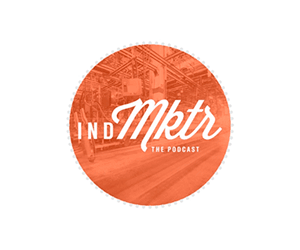In a recent interview with Contently, Seth Godin, the “godfather of modern marketing,” critiqued current trends in content marketing that emphasize quantitative approaches to content production and ROI measurements. Both of these issues are hot topics with content marketers, who are trying to figure out the quantity-quality balance while also developing methods for demonstrating the value of their efforts to executives who only know how to interpret balance sheets.
Godin’s take is a little more extreme than what seems to be the standard view among progressive content marketers, such as the Content Marketing Institute. Very reductively, this stance has become: Emphasize quality but make it replicable. And develop ways to measure the ROI of content marketing.
Godin, on the other hand, implies that the emphasis on ROI measurement may be at the top of a slippery slope that leads to a deluge of high-quantity, low-quality content. In the interview with Contently, he said:
I don’t have any problem with measurements, per se; I’m just saying that most of the time when organizations start to measure stuff, they then seek to industrialize it, to poke it into a piece of software, to hire ever cheaper people to do it.
Of course, any progressive content marketer’s response to this statement would be to agree, affirming that this tendency (i.e., what happens “most of the time,” according to Godin) is exactly what they are arguing — and working — against. While ROI measurement is important, one doesn’t want to get caught up in the purely quantitative thinking that could lead one to “industrialize” content, to use Godin’s word.
What Is Industrialized Content?
Naturally, as a content marketer who works in the industrial space, Godin’s free use of the term “industrialize” caught my eye. So just what did Godin mean when he used this word and applied it to content marketing? Later in the interview with Contently, he elaborated:
The challenge that we have when we industrialize content is we are asking people who don’t care to work their way through a bunch of checklists to make a number go up, as opposed to being human beings connecting with other human beings. What we find is that the more people care, ironically, the better they do compared to the industrialized systems of folks who don’t care and are just doing it for the money.
While Godin obviously wasn’t speaking about the actual industrial field or people who work in it, I find his deployment of the term “industrialize” — and the associations he made with it — unfortunate. It conflated industrialism with a lack of human connection and caring. Industrialized systems, he said, are made up of “folks who don’t care and are just doing it for the money.” To industrialize, in other words, means to do things in a mechanical way, devoid of any personal investiture.
Industry in a Post-Industrial Society
The thing is, if you come into contact with people who work in industrial fields, you rapidly find that the pejorative definition of “industrialize” Godin used is outdated. In the United States, it’s no stretch to claim that we live in a post-industrial society, which is transforming the very idea of what it is to be industrial.
Look at the modern manufacturing sector, for example. More and more, it is less about mass production and more about design, rapid prototyping, and short-run manufacturing. And it’s full of passionate people.
One of the most visible expressions of this transformation of industry by post-industrial forces is the unification of craft and manufacturing in manifestations such as the Maker Movement. For folks operating in this space, it’s as much about showcasing the thought and processes that go into making things as it is delivering finished objects.
Moreover, large companies are starting to adopt this thinking. Look at BMW, for example, which revealed the making of their i3 from start to finish in a 3-part series of YouTube videos produced by TestDriven. The automaker wants to show that it cares — that there is caring embedded in what it produces, as well as in its industrialized means of production.
Post-Industrial Content Marketing
Starting to look a bit more closely at what’s happening in the industrial world shows us that the quantity-quality debate in content marketing can’t be resolved by choosing whether to align with either side of the opposition between “human beings connecting with other human beings” and “industrialized system of folks who don’t care.” In fact, there are lessons about caring and connection that can be learned from the industrial sector, which is in the process of changing the very definition of what it means to “industrialize.”
Loosely used metaphors aside, we all know that content used for content marketing needs to be produced with passion and understanding. But at the same time, it also needs to be done consistently and to be held to some sort of performance standard.
Meanwhile, industrial workers and industrial workplaces are wrestling with some of the same dilemmas but are coming at them from entirely different angles. Repetitive tasks devoid of passion that are done just for the money are less and less prevalent in the post-industrial world. And many industrials care about what they do and want to show others — to create a human connection around their work.
In both contexts, the important thing is to find the right balance. And if you work in industrial content marketing, you’re in a unique position to be take part in both conversations at the same time. So rather than dwelling on the imaginary divide between content marketing made by “people who care” vs. “industrialized” content marketing, let’s commit to both caring and quantifying. In other words, let’s start thinking about what it means to practice post-industrial content marketing.




